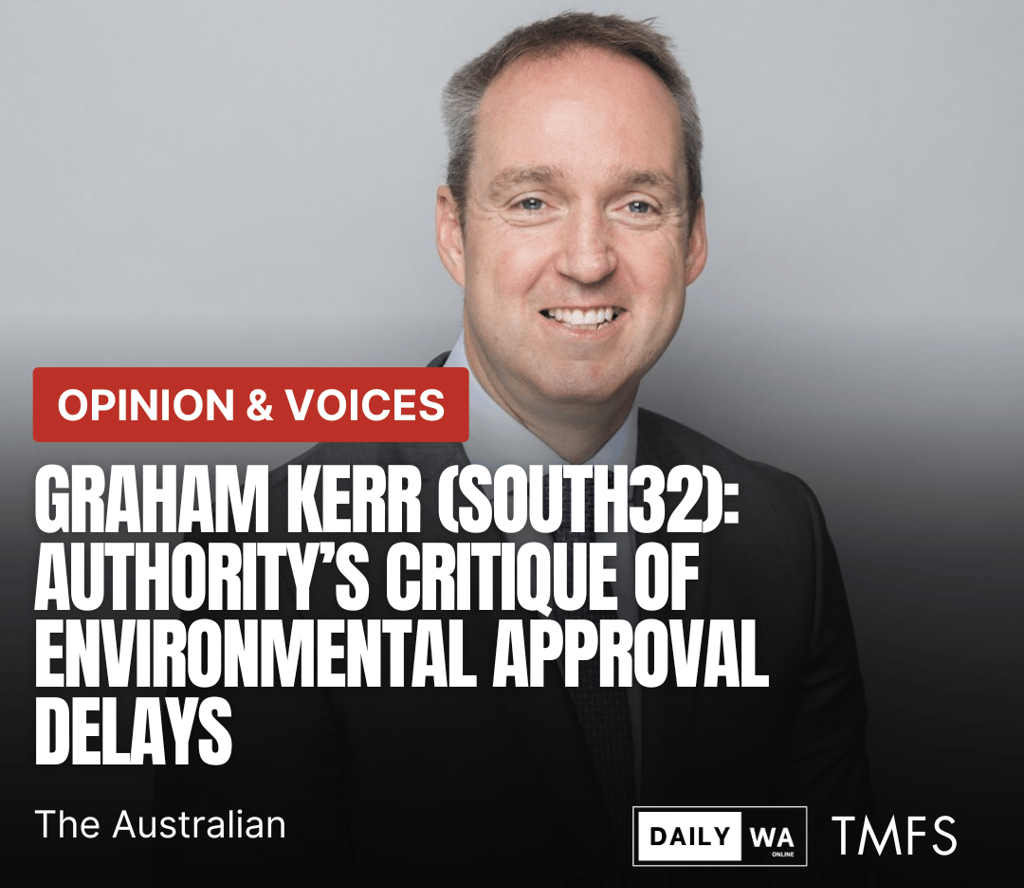Confronting the Cost of Environmental Approval Delays in Australia
South32 CEO Graham Kerr highlights the growing risks posed by prolonged environmental approval processes. Addressing these delays is critical for balancing sustainability with economic progress.
OPINION & VOICES


Australia stands at a crossroads where its commitment to environmental stewardship collides with the urgent need for economic growth and resource development. At the centre of this debate lies the question of environmental approvals—processes designed to safeguard ecosystems but often criticized for their complexity and sluggish pace.
Graham Kerr, CEO of South32, has raised pointed concerns about the unintended consequences of these delays. His critique is not aimed at environmental protection itself but at the inefficiencies that stall responsible projects for years. The reality is stark: projects that could generate jobs, strengthen supply chains, and accelerate the transition to renewable energy are too often trapped in bureaucratic limbo.
Data underscores the gravity of the issue. In the mining and resources sector alone, billions of dollars in potential investment remain locked up due to regulatory bottlenecks. These delays not only undermine investor confidence but also create ripple effects across communities that rely on the economic activity such projects would generate. In a global landscape where competition for capital is fierce, prolonged uncertainty places Australia at a disadvantage.
The challenge, however, is not to weaken environmental protections. Australians rightly demand rigorous standards to safeguard natural heritage and biodiversity. The question is how to achieve these outcomes while ensuring that decision-making processes are transparent, consistent, and timely. Other nations have demonstrated that it is possible to strike this balance. Canada and Norway, for example, have introduced streamlined pathways for projects that meet clear sustainability benchmarks, reducing approval times without sacrificing environmental integrity.
For industries like South32, the stakes are particularly high. As the world accelerates its demand for critical minerals essential to clean energy technologies, Australia has an opportunity to position itself as a global leader. Yet every delay risks ceding ground to competitors who can bring projects online faster. This is not just an economic opportunity lost but a missed chance to contribute to global decarbonization efforts.
Kerr’s argument reflects a broader truth: regulatory certainty is as vital as environmental safeguards. Clearer timelines, better resourcing for regulatory agencies, and improved coordination between federal and state jurisdictions could ease the gridlock. Technology also holds promise, with digital platforms enabling more efficient assessments and data sharing.
The debate around environmental approvals is not a clash between economy and ecology. It is about designing systems that respect both. Australians deserve an approach that honours the environment while fostering the innovation and investment needed to secure the nation’s future.
The time for incremental fixes has passed. To remain competitive and credible, Australia must modernize its environmental approval framework. Doing so will ensure that projects aligned with sustainability goals are not stifled by red tape but empowered to deliver benefits for communities, industries, and the planet.
All rights belong to their respective owners. This article contains references and insights based on publicly available information and sources. We do not claim ownership over any third-party content mentioned.


